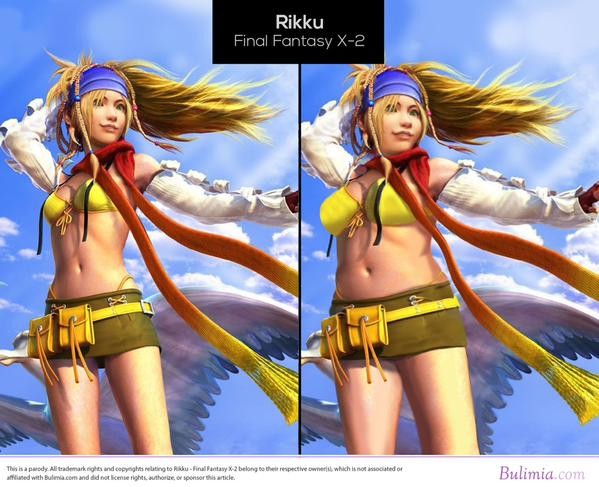An organization focusing on the effects of bulimia recently released a set of photoshopped pictures of famous video game characters. The pictures were intended to call the attention of video game creators that depicts unrealistic attention to detail.
The photos were posted on Bulimia.com and with a statement, "Some gaming studios boast their hyper-realistic lighting technique, touting natural cloud movements as the latest features of their games. And with that kind of attention to detail, it makes us wonder, why can't they accurately portray the female body?"
The organization cited that depiction of women in the video game universe were mostly inaccurate. Another trend the organization cited is the near absence of larger women and when they do show up, they are usually portrayed as unusual compared to the more common depiction of a character with ultra-slim waistline.
Using the image editing software Adobe Photoshop, the organization reverse photoshopped some famous video game characters like Christie Monteiro from "Tekken 5," Cortana from "Halo 4," Helena Douglas from "Dead or Alive 5," Rikku from "Final Fantasy X-2," and Lara Croft from "Tomb Raider," among others.
Bulimia.com claim that they gave the video game characters a more realistic makeover using the measurement of an average American woman. The organization said that by portraying women in an unrealistic way can have negative repercussions and impact on girl gamers especially the younger ones. This could open up an eschewed obsession of how a normal woman should look like.
These obsessions could develop into eating disorders like anorexia or bulimia. According to Motherboard, unrealistic depiction of women is also a problem in fashion and advertising.
Bulimia.com insists that video game creators should portray women in a realistic scale in order to prevent young gamers, especially girls, from developing eating disorders.



























